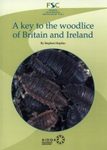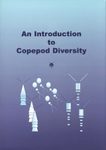By: Ernest S Chang(Editor), Martin Thiel(Editor)
512 pages, 12 plates with colour & b/w photos and colour illustrations; b/w photos, b/w illustrations, tables
![The Natural History of the Crustacea, Volume 4: Physiology The Natural History of the Crustacea, Volume 4: Physiology]()
Click to have a closer look
About this book
Contents
Customer reviews
Biography
Related titles
About this book
The Crustacea is one of the dominant invertebrate groups, displaying staggering diversity in form and function, and spanning the full spectrum of Earth's environments. Crustaceans are increasingly used as model organisms in all fields of biology, as few other taxa exhibit such a variety of body shapes and adaptations to particular habitats and environmental conditions. Physiology is the fourth volume in The Natural History of the Crustacea series, and the first book in over twenty-five years to provide an overview of the comparative physiology of crustaceans. An understanding of physiology is crucial to a comprehension of the biology of this fascinating invertebrate group. Written by a group of internationally recognized experts studying a wide range of crustacean taxa and topics, The Natural History of the Crustacea, Volume 4: Physiological Regulation synthesizes current research in a format that is accessible to a wide scientific audience.
Contents
Chapter 1. Endocrinology of Molting
Simon G. Webster
Chapter 2. Endocrinology of Metabolism and Water Balance - Crustacean Hyperglycemic Hormone
Simon G. Webster
Chapter 3. Adaptive Color Change and the Molecular Endocrinology of Pigment Translocation in Crustacean Chromatophores
John Campbell McNamara and Sarah Ribeiro Milograna
Chapter 4. Muscle Structure, Fiber Types, and Physiology
Scott Medler and Donald L. Mykles
Chapter 5. Skeletal Muscle Differentiation, Growth, and Plasticity
Donald L. Mykles and Scott Medler
Chapter 6. Regeneration in Crustaceans
Penny M. Hopkins and Sunetra Das
Chapter 7. Circulatory Physiology
Ian J. McGaw and Carl L. Reiber
Chapter 8. Osmoregulation and Excretion
Jehan Hervé Lignot and Guy Charmantier
Chapter 9. Nutrition and Digestion
Reinhard Saborowski
Chapter 10. Responses to Environmental Stresses: Oxygen, Temperature and pH
Nia M. Whiteley and Edwin W. Taylor
Chapter 11. Oxygen Transport Proteins in Crustacea: Hemocyanin and Hemoglobin
Nora B. Terwilliger
Chapter 12. Energetics and Metabolic Regulation
Ana Gabriela Jimenez and Stephen T. Kinsey
Chapter 13. Crustacean Genomics and Functional Genomic Responses to Environmental Stress and Infection
Jonathon H. Stillman and David A. Hurt
Chapter 14. Endocrine Disrupting Chemicals
Peter L. deFur and Laura E. Williams
Chapter 15. Some Physiological Responses of Crustaceans to Toxicants
Judith S. Weis
Customer Reviews
Biography
Ernest S. Chang is a Professor at the Bodega Marine Laboratory at the University of California, Davis. Martin Thiel is Professor of Marine Biology at Universidad Catolica del Norte, Coquimbo, Chile.
By: Ernest S Chang(Editor), Martin Thiel(Editor)
512 pages, 12 plates with colour & b/w photos and colour illustrations; b/w photos, b/w illustrations, tables









































